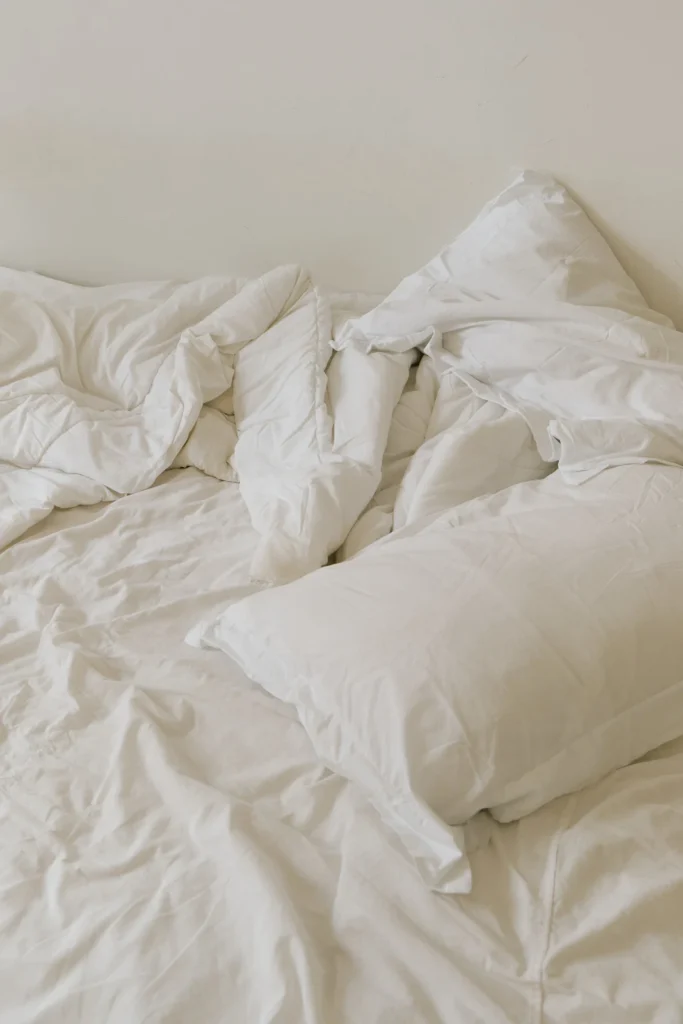By Angela Young, Herbalist and Naturopath
Keeping a close eye on the amount of sleep achieved each night is something to invest time in when trying to improve overall health and fertility for both sexes. The rejuvenating effect of restorative sleep is not to be ignored.
Testosterone in men is mostly released during sleep, and clinical studies have shown levels of testosterone decrease in fragmented nights and when there is a reduced number of sleep cycles per night. (9). Women also experience a detrimental effect on their fertility when sleep is not optimal.
Neuroscientist and sleep expert Matthew Walker claims that women who do not have consistently restful and sufficient sleep are 30% more likely to have “abnormal menstrual cycles and suffer reductions in hormones critical to sexual wellness and fertility, including estrogen, luteinizing hormone, and follicle-stimulating hormone”. (10)
He advocates against using sleeping tablets to bridge the gap, stating these “do not provide natural sleep, can damage health, and increase the risk of life-threatening diseases”. (10).
So how do we optimize our sleep cycle naturally?
Our circadian rhythm is our internal body clock that controls the release of melatonin the sleep hormone. When we spend large amounts of time inside, under artificial lighting, and close to other sources of what is called ‘blue’ lighting, such as the light emitted from televisions, laptops, and phones, then our body clock gets confused. The rhythm can be re-set by exposure to daylight, firstly by going outside first thing in the morning, for ideally 20 minutes, and again during the day for another 20 mins. I also recommend avoiding We blue light-emitting devices for two hours before bedtime (the perfect time to find a good book!).
I also encourage my patients to enlist the plant world to help optimize quality rest.
I love Ashwagandha for those who complain that they wake in the night and struggle to get back to sleep, as it repairs the adrenal glands, and is therefore considered a restorative herb. This is why herbal medicines, when used as sleep aids are far superior to pharmaceutical sleeping tablets.
Those who have trouble falling asleep can benefit from drinking a cup of herbal tea of sedating herbs such as Chamomile and Passiflora incarnata just before bedtime.
Ashwagandha, Skullcap, Peony, and Nettle are all considered safe to use when trying to conceive and also when pregnant.
About Angela:
Angela Young is a qualified and insured Herbalist and Naturopath, who runs her practice online, and from a clinic in the UK. She is a fully accredited member of the Association of Naturopathic Practitioners and GNC (General Naturopathic Council).
@wildherbiology

